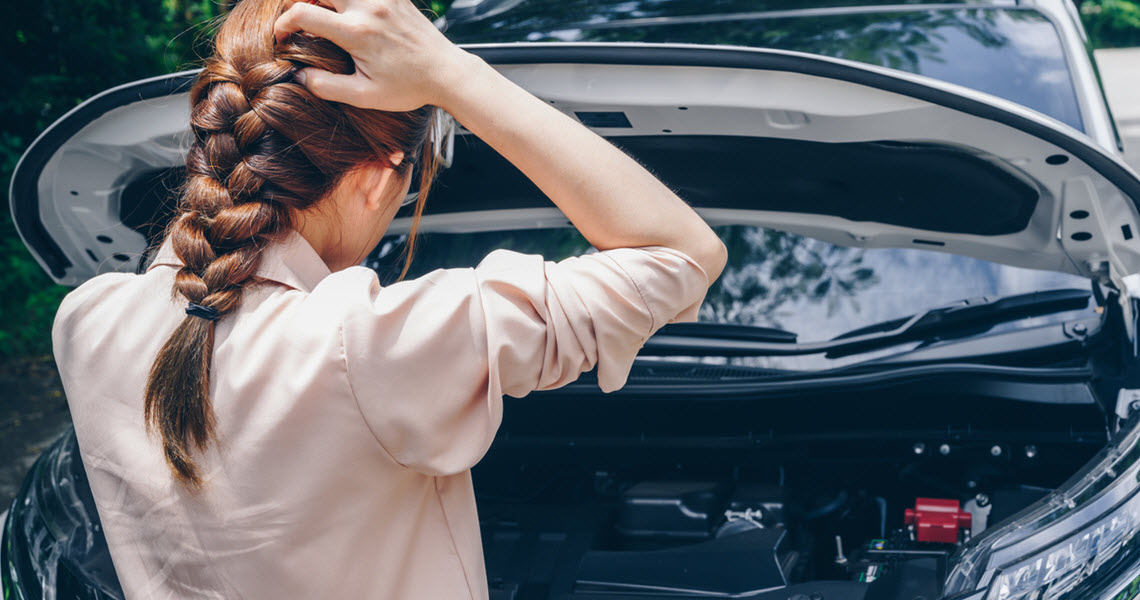- February 28, 2025
- Porsche Repair
- Posted by Charles Oehmke
- Comments Off on Pontiac’s Most Preferred Garage for Water Pump Leak Repairs in Porsches
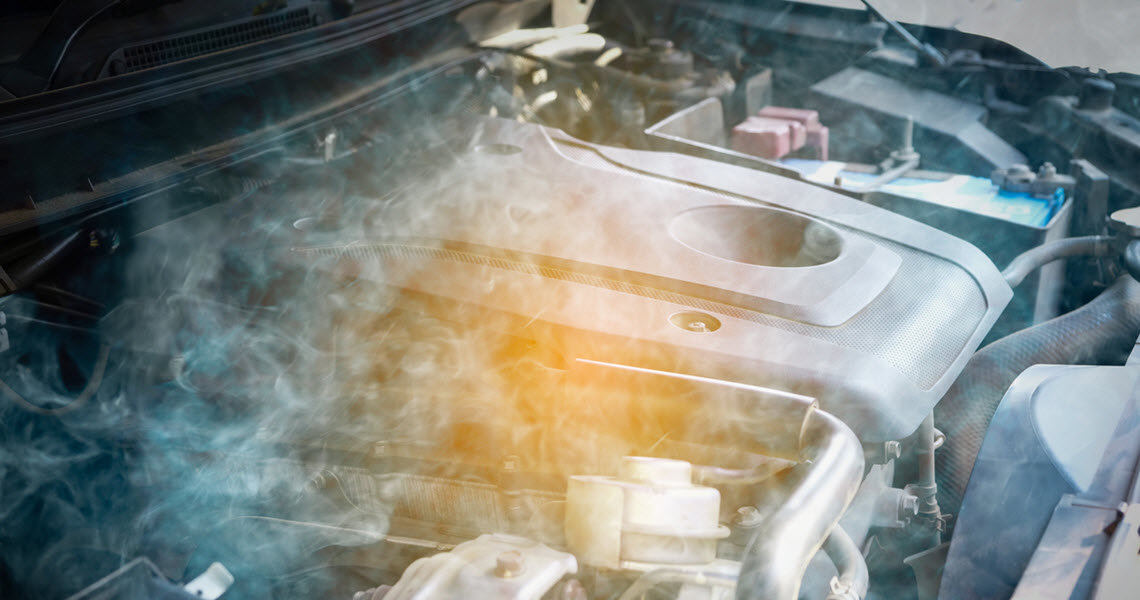 Even the most well-crafted cars can encounter mechanical issues over time, with one of the more common problems being a water pump leak. The water pump in a Porsche is needed for the engine’s cooling system, and if it starts leaking, it can cause bigger problems and you’ll find yourself spending much more than you anticipated on repairs.
Understanding the Importance of the Porsche Water Pump
The water pump is responsible for circulating coolant throughout the engine, helping to maintain the right operating temperature. If the water pump starts to leak, it can lead to coolant loss, causing the engine to overheat. You could find yourself on the side of the road with steam coming from under the hood leaving you stranded. Overheating can cause engine damage, leading to costly repairs. You need to make sure you get your water pump fixed as soon as possible to keep you from having bigger problems.
Signs of a Water Pump [...]
Even the most well-crafted cars can encounter mechanical issues over time, with one of the more common problems being a water pump leak. The water pump in a Porsche is needed for the engine’s cooling system, and if it starts leaking, it can cause bigger problems and you’ll find yourself spending much more than you anticipated on repairs.
Understanding the Importance of the Porsche Water Pump
The water pump is responsible for circulating coolant throughout the engine, helping to maintain the right operating temperature. If the water pump starts to leak, it can lead to coolant loss, causing the engine to overheat. You could find yourself on the side of the road with steam coming from under the hood leaving you stranded. Overheating can cause engine damage, leading to costly repairs. You need to make sure you get your water pump fixed as soon as possible to keep you from having bigger problems.
Signs of a Water Pump [...]
- December 30, 2024
- Porsche Repair
- Posted by Charles Oehmke
- Comments Off on Diagnosing the Causes of Porsche IMS Bearing Failures
 Porsche vehicles are well known for their great speed and excellent engine performance. However, they are also known for their IMS-bearing failures. Many Porsche drivers have experienced various engine problems influenced by an IMS bearing failure.
As a Porsche owner, understanding the cause of this issue in Porsche models can help you take action to prevent your car from being affected by it. Hence, this guide has compiled some common causes of IMS Bearing failure and the best way to protect your car.
The IMS Bearing in a Porsche Vehicle Common Reasons for Failure
Before we move on to the causes of failure, let us first discuss what the IMS bearing is and its function in your Porsche vehicle. The Intermediate Shaft (IMS) bearing supports the intermediate shaft, an essential part of a vehicle that drives engine function.
For your car’s engine to run smoothl [...]
Porsche vehicles are well known for their great speed and excellent engine performance. However, they are also known for their IMS-bearing failures. Many Porsche drivers have experienced various engine problems influenced by an IMS bearing failure.
As a Porsche owner, understanding the cause of this issue in Porsche models can help you take action to prevent your car from being affected by it. Hence, this guide has compiled some common causes of IMS Bearing failure and the best way to protect your car.
The IMS Bearing in a Porsche Vehicle Common Reasons for Failure
Before we move on to the causes of failure, let us first discuss what the IMS bearing is and its function in your Porsche vehicle. The Intermediate Shaft (IMS) bearing supports the intermediate shaft, an essential part of a vehicle that drives engine function.
For your car’s engine to run smoothl [...]
- October 30, 2024
- Porsche Repair
- Posted by Charles Oehmke
- Comments Off on Why You Shouldn’t Ignore Metal Shavings in Your Porsche Oil
 Have you ever noticed some metal splinters in your car’s engine oil? Such a problem is easy to ignore as it does not seem as serious as faulty brake pads. However, your Porsche is an investment and if you want to get the best return, you have to pay attention to all its issues as they come.
Metal shavings in your car oil could be a result of various factors and in this guide, we will explain these factors in detail and help you find a solution to this problem before it ruins your investment.
What Causes Metal Shavings in Car Oil?
While it is almost normal to have metal shreds
Have you ever noticed some metal splinters in your car’s engine oil? Such a problem is easy to ignore as it does not seem as serious as faulty brake pads. However, your Porsche is an investment and if you want to get the best return, you have to pay attention to all its issues as they come.
Metal shavings in your car oil could be a result of various factors and in this guide, we will explain these factors in detail and help you find a solution to this problem before it ruins your investment.
What Causes Metal Shavings in Car Oil?
While it is almost normal to have metal shreds 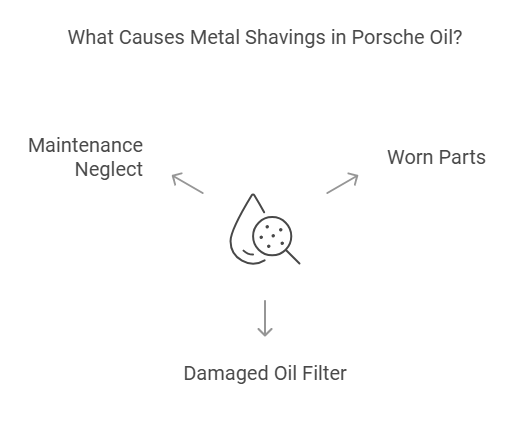
- September 30, 2024
- Porsche Repair
- Posted by Charles Oehmke
- Comments Off on Where to Get Porsche Ignition Lock Fixed in Pontiac?
 Ignition lock problems in your Porsche can be frustrating, especially when you have somewhere to be and the engine won't start. The ignition lock is part of the ignition switch mechanism that helps you start or stop the engine and other electrical appliances in the car. However, this ignition lock could fail to perform its functions, leading to various inconveniences.
Reasons for Porsche Ignition Lock Faults
Here are some of the most common causes of ignition lock failures in a car:
Electrical Issues
Ignition lock problems may arise in your car due to electrical problems like faulty wiring or poor connection. The ignition system needs a steady supply of electricity to power the ignition switch and lock which ensures that the engine starts. However, without the needed supply of electricity, the ignition lock could fail to deliver its function.
Damaged Key or Key Fob
Depending on the ignition system that your car has, you may need [...]
Ignition lock problems in your Porsche can be frustrating, especially when you have somewhere to be and the engine won't start. The ignition lock is part of the ignition switch mechanism that helps you start or stop the engine and other electrical appliances in the car. However, this ignition lock could fail to perform its functions, leading to various inconveniences.
Reasons for Porsche Ignition Lock Faults
Here are some of the most common causes of ignition lock failures in a car:
Electrical Issues
Ignition lock problems may arise in your car due to electrical problems like faulty wiring or poor connection. The ignition system needs a steady supply of electricity to power the ignition switch and lock which ensures that the engine starts. However, without the needed supply of electricity, the ignition lock could fail to deliver its function.
Damaged Key or Key Fob
Depending on the ignition system that your car has, you may need [...]
- August 27, 2024
- Porsche Repair
- Posted by Charles Oehmke
- Comments Off on How to Handle Your Porsche’s Pressure Accumulator Failures
 No vehicle is immune to problems, and the older it gets, the more susceptible it is to damage due to wear and tear. You may begin to notice issues with your Porsche's systems the longer you drive it. One of the common issues with Porsche models is the pressure accumulator failure. A breakdown of this component could cause various problems from reduced performance to rough rides. Being able to identify this problem in time and fix it is key to protecting your car's system.
What is a Porsche Pressure Accumulator and Does it Fail?
Your Porsche needs various car components to ensure that it functions adequately, the pressure accumulator is one of such components. The pressure accumulator is made up of chambers, valves, pistons, pumps, and hydraulic lines.
This component utilizes hydraulic fluid in various car parts to generate and regulate pressure that ensures the efficient function of these parts. Some vehicle systems such as braking, suspe [...]
No vehicle is immune to problems, and the older it gets, the more susceptible it is to damage due to wear and tear. You may begin to notice issues with your Porsche's systems the longer you drive it. One of the common issues with Porsche models is the pressure accumulator failure. A breakdown of this component could cause various problems from reduced performance to rough rides. Being able to identify this problem in time and fix it is key to protecting your car's system.
What is a Porsche Pressure Accumulator and Does it Fail?
Your Porsche needs various car components to ensure that it functions adequately, the pressure accumulator is one of such components. The pressure accumulator is made up of chambers, valves, pistons, pumps, and hydraulic lines.
This component utilizes hydraulic fluid in various car parts to generate and regulate pressure that ensures the efficient function of these parts. Some vehicle systems such as braking, suspe [...]
- February 5, 2024
- Porsche Repair
- Posted by Charles Oehmke
- Comments Off on Why You Should Not Drive a Porsche With a Chipped Windshield
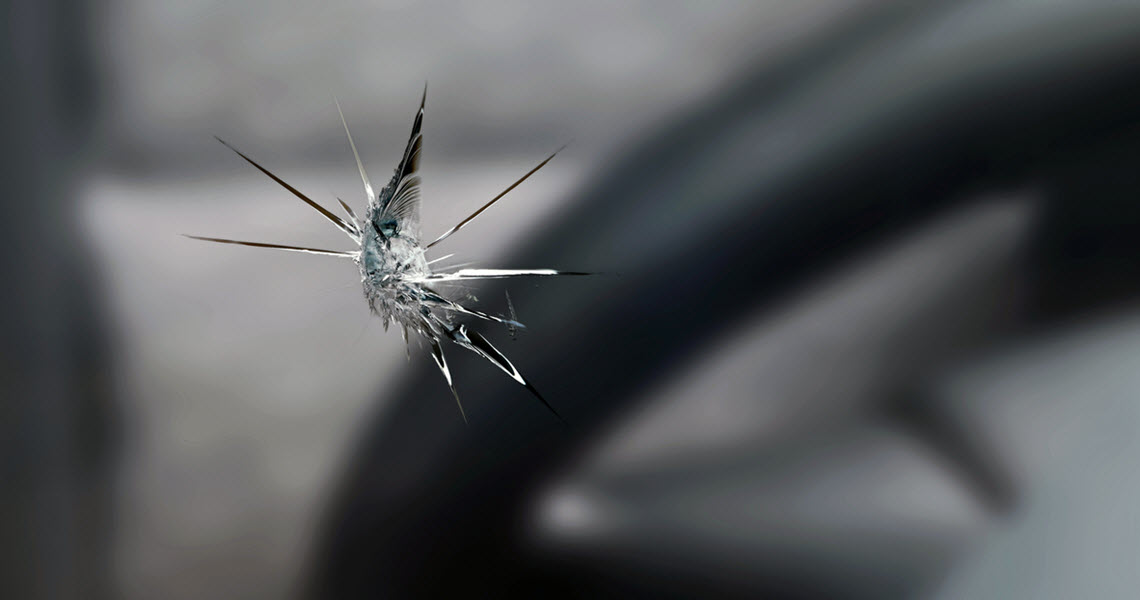 Picture this: cruising down the highway in your sleek Porsche, wind in your hair, and the world at your fingertips. Suddenly, a rock dings your windshield, leaving behind a seemingly harmless chip. Many Porsche owners might brush this off as a minor inconvenience, but what they don't realize are the potential hazards that come with neglecting this seemingly innocuous flaw. Your windshield is not just a glass barrier; it's a crucial safety component of your car, and even a small chip can snowball into significant dangers on the road.
A chipped windshield compromises the structural integrity of your Porsche, making it vulnerable to further damage. What might start as a small chip can quickly spread into a web of cracks, obstructing your vision and weakening the overall sturdiness of the windshield.
Even more importantly, in the unfortunate event [...]
Picture this: cruising down the highway in your sleek Porsche, wind in your hair, and the world at your fingertips. Suddenly, a rock dings your windshield, leaving behind a seemingly harmless chip. Many Porsche owners might brush this off as a minor inconvenience, but what they don't realize are the potential hazards that come with neglecting this seemingly innocuous flaw. Your windshield is not just a glass barrier; it's a crucial safety component of your car, and even a small chip can snowball into significant dangers on the road.
A chipped windshield compromises the structural integrity of your Porsche, making it vulnerable to further damage. What might start as a small chip can quickly spread into a web of cracks, obstructing your vision and weakening the overall sturdiness of the windshield.
Even more importantly, in the unfortunate event [...]
- June 29, 2023
- Porsche Repair
- Posted by Charles Oehmke
- Comments Off on 5 Signs of a Porsche’s Driveshaft Support Failure
 As a Porsche owner, it is not uncommon to encounter issues with the driveshaft support. This component plays a crucial role in the smooth operation of a Porsche's drivetrain. It helps to transfer power from the engine to the wheels, ensuring a seamless driving experience.
Over time, various factors can contribute to the failure of the driveshaft support, affecting the performance and reliability of your Porsche. Here is a closer look at some reasons why your driveshaft support fails and 5 signs that indicate a potential failure in the driveshaft support.
Time, Age, and Use
The driveshaft support can undergo wear and tear due to exposure to various road conditions. The bearing within the support can deteriorate, leading to increased play and potential failure. This wear and tear can be accelerated by factors such as aggressive driving [...]
As a Porsche owner, it is not uncommon to encounter issues with the driveshaft support. This component plays a crucial role in the smooth operation of a Porsche's drivetrain. It helps to transfer power from the engine to the wheels, ensuring a seamless driving experience.
Over time, various factors can contribute to the failure of the driveshaft support, affecting the performance and reliability of your Porsche. Here is a closer look at some reasons why your driveshaft support fails and 5 signs that indicate a potential failure in the driveshaft support.
Time, Age, and Use
The driveshaft support can undergo wear and tear due to exposure to various road conditions. The bearing within the support can deteriorate, leading to increased play and potential failure. This wear and tear can be accelerated by factors such as aggressive driving [...]
- May 26, 2023
- Porsche Repair
- Posted by Charles Oehmke
- Comments Off on Porsche Engine Misfire in Pontiac – Learn the Causes & Solutions
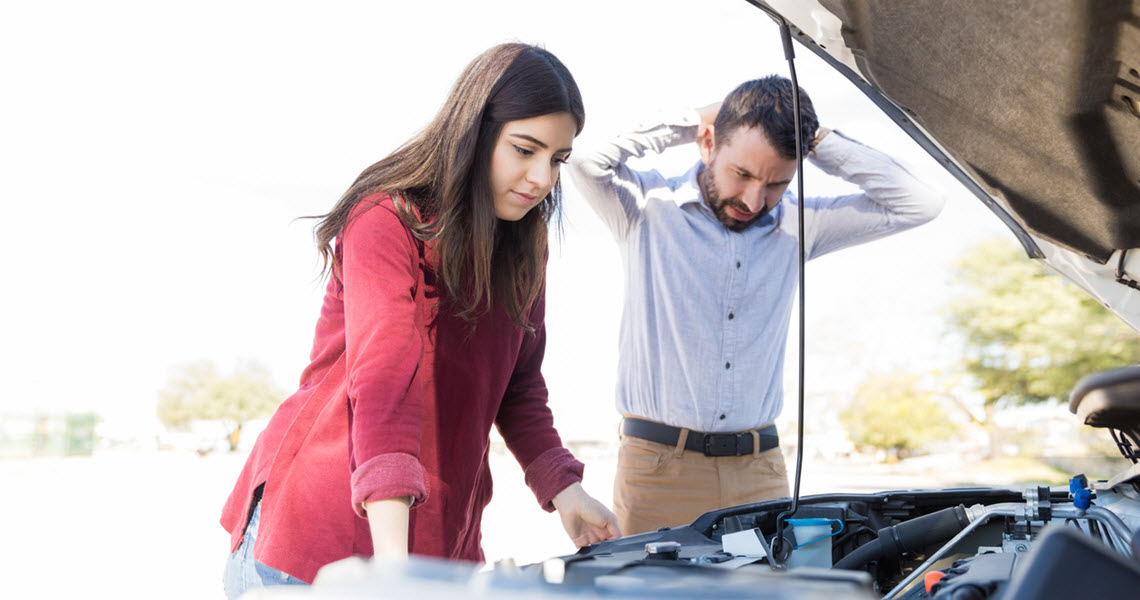 One common problem that Porsche owners may face is an engine misfire. If you own a Porsche, you know how important it is to maintain its high-performance engine. However, even with regular maintenance and care, issues can arise, and an engine misfire is one of them. Engine misfires can disrupt the smooth operation of your Porsche, impacting its performance and overall driving experience. Understanding the causes and solutions to this problem is crucial in ensuring the longevity and reliability of your Porsche.
Why Engine Misfires Occur
Faulty Ignition System
The ignition system plays a vital role in initiating combustion in the engine. Over time, the spark plugs and ignition coils can wear out, leading to a weak spark or no spark at all. This can result in misfires, where the fuel doesn't ignite properly. A misfire can affect the performance of your vehicle, and you may not be able to drive or start the vehicle.
Fuel Delivery Is [...]
One common problem that Porsche owners may face is an engine misfire. If you own a Porsche, you know how important it is to maintain its high-performance engine. However, even with regular maintenance and care, issues can arise, and an engine misfire is one of them. Engine misfires can disrupt the smooth operation of your Porsche, impacting its performance and overall driving experience. Understanding the causes and solutions to this problem is crucial in ensuring the longevity and reliability of your Porsche.
Why Engine Misfires Occur
Faulty Ignition System
The ignition system plays a vital role in initiating combustion in the engine. Over time, the spark plugs and ignition coils can wear out, leading to a weak spark or no spark at all. This can result in misfires, where the fuel doesn't ignite properly. A misfire can affect the performance of your vehicle, and you may not be able to drive or start the vehicle.
Fuel Delivery Is [...]
- March 2, 2023
- Porsche Repair
- Posted by Charles Oehmke
- Comments Off on When Should You Replace your Porsche’s Clutch Slave Cylinder?
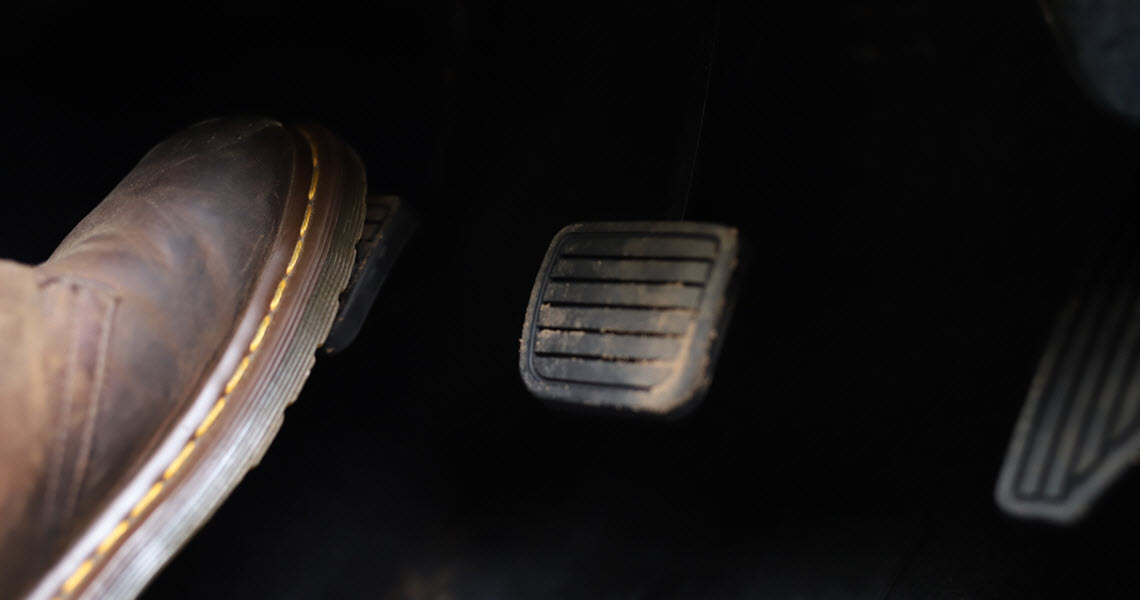 The clutch slave cylinder in your Porsche is responsible for creating the hydraulic pressure necessary for the clutch to engage and disengage. The cylinder is actuated by the clutch pedal, and when activated, it pushes the clutch release bearing onto the pressure plate, allowing the clutch to disengage. When the clutch pedal is released, the slave cylinder releases pressure on the release bearing, allowing for the clutch to engage.
Despite its importance in the clutch system, the cylinder can fail over time. This article will explore the causes of clutch slave cylinder failure in a Porsche vehicle, the signs of failure, and the process of replacing this component.
Why the Slave Cylinder Fails
There are several factors that can make it fail. Here are some of the most common causes of failure:
Wear and Tear: As with most mechanical components, wear and tear are the most common causes of
The clutch slave cylinder in your Porsche is responsible for creating the hydraulic pressure necessary for the clutch to engage and disengage. The cylinder is actuated by the clutch pedal, and when activated, it pushes the clutch release bearing onto the pressure plate, allowing the clutch to disengage. When the clutch pedal is released, the slave cylinder releases pressure on the release bearing, allowing for the clutch to engage.
Despite its importance in the clutch system, the cylinder can fail over time. This article will explore the causes of clutch slave cylinder failure in a Porsche vehicle, the signs of failure, and the process of replacing this component.
Why the Slave Cylinder Fails
There are several factors that can make it fail. Here are some of the most common causes of failure:
Wear and Tear: As with most mechanical components, wear and tear are the most common causes of 
